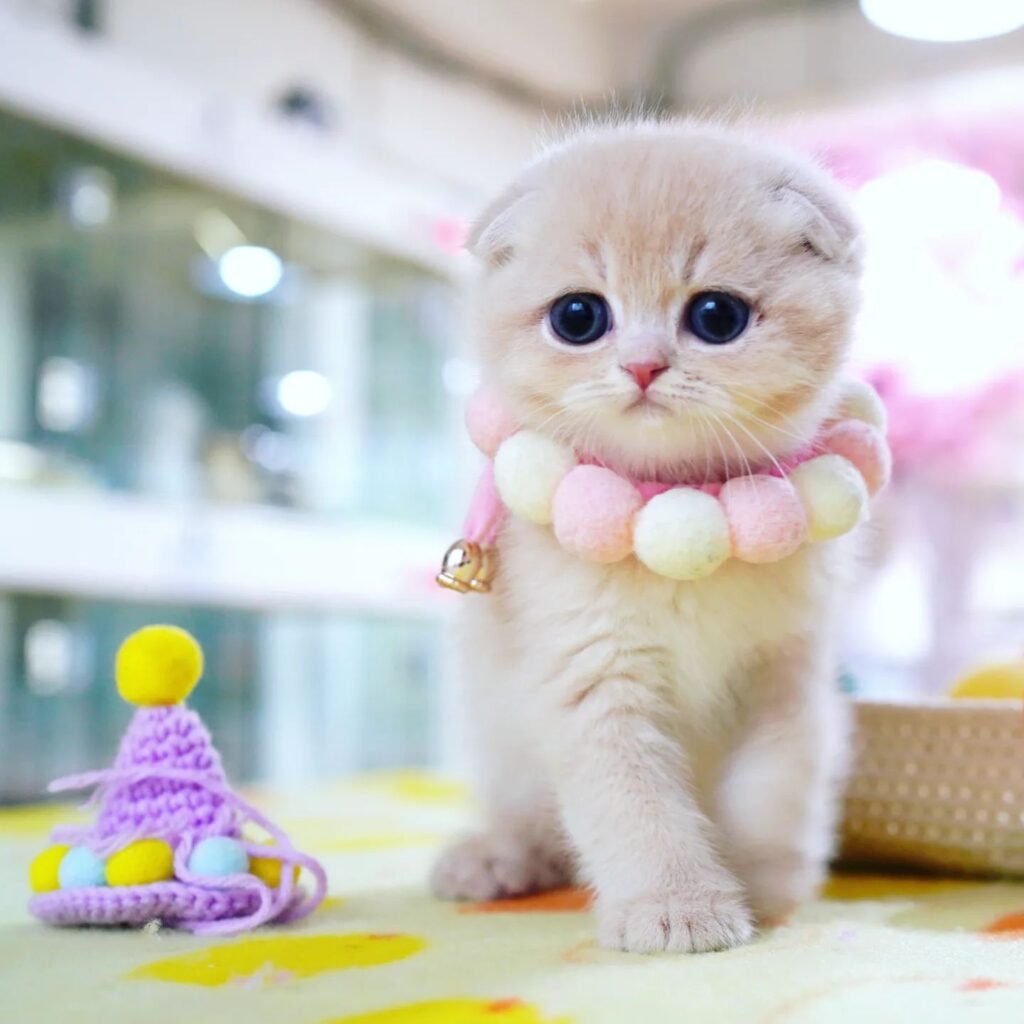About Scottish Fold
A natural genetic mutation in an otherwise normal Scottish Fold Munchkin is frequently the impetus for the creation of a new cat breed. One example was the Scottish Fold. Susie, the breed’s ancestor, was a white cat with folded ears who worked as a mouser in a Tayside barn.
Susie would have gone unnoticed had it not been for a shepherd named William Ross spotting her in 1961. Snooks is the name Ross gave to one of Susie’s kittens.
Snooks gave birth to kittens, one of whom, a male, was bred to a British Shorthair. Thus began the development of “lop-eared cats,” dubbed Scottish Folds after their country of origin and distinguishing feature.
Furthermore, the folded ear gene mutation is dominant, so if one parent passes on a gene for straight ears and the other a fold, the kitten will have folded ears. Susie also passed on a gene for long hair to her descendants. The longhaired variant is known as a Highland Fold by some groups.
Scottish Fold Munchkin first appeared in the United States in 1971. By the mid-1970s, most North American cat associations had recognized them. They can be outcrossed by American and British Shorthairs.
Their folded ear may result in ear infections or deafness, and a cartilage issue may result in ear infections or deafness.

Personality
The first thing you’ll notice about a Scottish Fold is their odd postures—flat on the floor like a frog, sitting up like a meerkat on a nature show, or resting on their back with their paws in the air. In addition, contrary to popular belief, their ears are not less mobile than those of other cats. Scottish Folds, who are slightly chirpy, communicate effectively through their ears.
It’s a lively, intelligent cat. The Scottish Fold enjoys playing with a few different toys. Human interaction is one of their favorite pastimes.
A Scottish Fold takes pleasure in being with its people and participating in their activities. They’re a sweet and affectionate cat. Not a good option unless you have someone home during the day or another cat to keep them company.
They will, however, expect you to play with them when you get home from work or school, or at the very least to sit down and give them some lap time or cuddle time while you watch television.
Health
Both pedigreed and mixed breed cats can have inherited health problems. 15 years in general. Among the issues that could have an impact on the Scottish Fold are:
1) Degenerative joint disease that causes pain or immobility in the tailbone, ankle, and knee joints. Handle the tail with caution if it is stiff.
2) Hypertrophic cardiomyopathy, a type of heart disease, has been observed in the breed but has not been proven heritable.
You should be prepared for any problems your kitty may have, regardless of how healthy they are when you first get them. A pet insurance policy can assist you in preparing for your cat’s medical needs. Scottish Fold pet insurance is available right here!
Care
Comb the Scottish Fold’s coat once a week to remove dead hair and skin oils. To prevent knots, a longhaired Fold may require weekly grooming.
Brushing helps to prevent plaque buildup. Brushing once a week is preferable to none. Every two weeks, trim your nails.
With a wet towel, wipe away any discharge from the eye corners. To avoid infection, use a different part of the cloth for each eye.
Check the ears on a weekly basis, especially if they are folded. To clean them, soak them in a 50/50 mixture of cider vinegar and warm water. Cotton swabs may cause internal ear damage.
Keep the Scottish Fold litter box clean. A clean litter box will also aid in keeping the coat clean.
